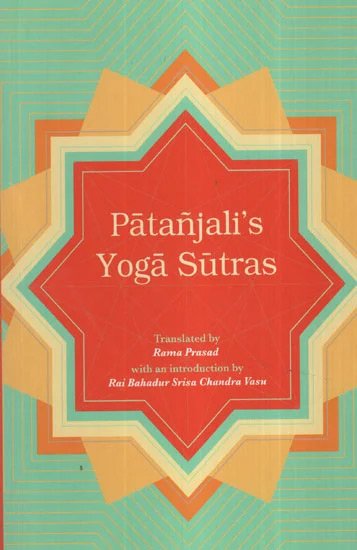Yoga-sutras (with Vyasa and Vachaspati Mishra)
by Rama Prasada | 1924 | 154,800 words | ISBN-10: 9381406863 | ISBN-13: 9789381406861
The Yoga-Sutra 2.14, English translation with Commentaries. The Yoga Sutras are an ancient collection of Sanskrit texts dating from 500 BCE dealing with Yoga and Meditation in four books. It deals with topics such as Samadhi (meditative absorption), Sadhana (Yoga practice), Vibhuti (powers or Siddhis), Kaivaly (isolation) and Moksha (liberation).
Sūtra 2.14
Sanskrit text, Unicode transliteration and English translation of Sūtra 2.14:
ते ह्लादपरितापफलाः पुण्यापुण्यहेतुत्वात् ॥ २.१४ ॥
te hlādaparitāpaphalāḥ puṇyāpuṇyahetutvāt || 2.14 ||
te—they, hlāda—pleasure, paritāpa—pain, phalāḥ—fruits, hlādaparitāpaphalāḥ—Having pleasure and pain as fruits. puṇya—virtue. apuṇya—vice. hetu—reason, puṇyāpuṇyahetutvāt—Because virtue and vice are their causes.
14. They have pleasure or pain as the fruit, by reason of virtue or vice.—65.
The Sankhya-pravachana commentary of Vyasa
[English translation of the 7th century commentary by Vyāsa called the Sāṅkhya-pravacana, Vyāsabhāṣya or Yogabhāṣya]
[Sanskrit text for commentary available]
They, i.e., life-state, life-period and life-experience, have pleasure for their fruit, when caused by virtue, and have pain for their fruit when caused by vice.
As pain consists in what is contrary to the prevalent mental tendencies at a time, there must be pain to the Yogī’s mind even at the time of the enjoyment of pleasurable objects.—65.
The Gloss of Vachaspati Mishra
[English translation of the 9th century Tattvavaiśāradī by Vācaspatimiśra]
It has been said that karma has its origin in afflictions. It has also been said that the fruitions have their origin in actions (karma). Now the question is of what are the fruitions the origin, so that they too have to be given up? For this reason he says:—‘They have pleasure or pain as their fruit, by reason of virtue and vice.’ Explains:—‘They, i.e., life-state, &c.’
Although life-state and life-period only have pleasure and pain as their fruit, inasmuch as those come before these, and not so life-experience, inasmuch as that comes after pleasure and pain have arisen, and inasmuch as it consists in the very experience thereof, yet that too is spoken of as the fruit of enjoyment, because being perceivable and enjoyable, it is an object of the act of enjoyment.
The question arises that although the life-state, life-experience and life-period caused by vice and causing pain may well be regarded as removable, being found to be contrary, why should those be given up which have been caused by virtue and cause pleasure? They are seen to be moving along the proper line. It is impossible that even a thousand inferences and so-called authoritative statements should do away with the fact of their moving along the line of every individual mind. Nor are pleasure and pain possible of existence the one without the other, inasmuch as when pleasure is taken up, pain too is there as not to be given up, as they have different causes and different appearances, For this reason he says:—‘And as this pain, &c’—14.
